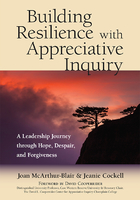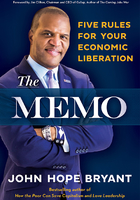NTRODUCTION
"The Dumbest Idea in the World"
The Deepwater Horizon was an oil drilling rig, a massive floating structure that cost more than a third of a billion dollars to build and measured the length of a football field from bottom to top. On the night of April 20, 2010, the Deepwater Horizon was working in the Gulf of Mexico, finishing an exploratory well named Macondo for the corporation BP. Suddenly the rig was rocked by a loud explosion. Within minutes the Deepwater Horizon was transformed into a column of fire that burned for nearly two days before collapsing into the depths of the Gulf of Mexico. Meanwhile, the Macondo well began vomiting tens of thousands of barrels of oil daily from beneath the sea floor into the Gulf waters. By the time the well was capped in September 2010, the Macondo well blowout was estimated to have caused the largest offshore oil spill in history.[1]
The Deepwater Horizon disaster was tragedy on an epic scale, not only for the rig and the eleven people who died on it, but also for the corporation BP. By June of 2010, BP had suspended paying its regular dividends, and BP common stock (trading around $60 before the spill) had plunged to less than $30 per share. The result was a decline in BP's total stock market value amounting to nearly $100 billion. BP's shareholders were not the only ones to suffer. The value of BP bonds tanked as BP's credit rating was cut from a prestigious AA to the near-junk status BBB. Other oil companies working in the Gulf were idled, along with BP, due to a government-imposed moratorium on further deepwater drilling in the Gulf. Business owners and workers in the Gulf fishing and tourism industries struggled to make a living. Finally, the Gulf ecosystem itself suffered enormous damage, the full extent of which remains unknown today.
After months of investigation, the National Commission on the BP Deepwater Horizon Oil Spill and Offshore Drilling concluded the Macondo blowout could be traced to multiple decisions by BP employees and contractors to ignore standard safety procedures in the attempt to cut costs. (At the time of the blowout, the Macondo project was more than a month behind schedule and almost $60 million over budget, with each day of delay costing an estimated $1 million.)[2] Nor was this the first time BP had sacrificed safety to save time and money. The Commission concluded, "BP's safety lapses have been chronic."[3]
The Ideology of Shareholder Value
Why would a sophisticated international corporation make such an enormous and costly mistake? In trying to save $1 million a day by skimping on safety procedures at the Macondo well, BP cost its shareholders alone a hundred thousand times more, nearly $100 billion. Even if following proper safety procedures had delayed the development of the Macondo well for a full year, BP would have done much better. The gamble was foolish, even from BP's perspective.
This book argues that the Deepwater Horizon disaster is only one example of a larger problem that afflicts many public corporations today. That problem might be called shareholder value thinking. According to the doctrine of shareholder value, public corporations "belong" to their shareholders, and they exist for one purpose only, to maximize shareholders' wealth. Shareholder wealth, in turn, is typically measured by share price—meaning share price today, not share price next year or next decade.
Shareholder value thinking is endemic in the business world today. Fifty years ago, if you had asked the directors or CEO of a large public company what the company's purpose was, you might have been told the corporation had many purposes: to provide equity investors with solid returns, but also to build great products, to provide decent livelihoods for employees, and to contribute to the community and the nation. Today, you are likely to be told the company has but one purpose, to maximize its shareholders' wealth. This sort of thinking drives directors and executives to run public firms like BP with a relentless focus on raising stock price. In the quest to "unlock shareholder value" they sell key assets, fire loyal employees, and ruthlessly squeeze the workforce that remains; cut back on product support, customer assistance, and research and development; delay replacing outworn, outmoded, and unsafe equipment; shower CEOs with stock options and expensive pay packages to "incentivize" them; drain cash reserves to pay large dividends and repurchase company shares, leveraging firms until they teeter on the brink of insolvency; and lobby regulators and Congress to change the law so they can chase short-term profits speculating in credit default swaps and other high-risk financial derivatives. They do these things even though many individual directors and executives feel uneasy about such strategies, intuiting that a single-minded focus on share price may not serve the interests of society, the company, or shareholders themselves.
This book examines and challenges the doctrine of shareholder value. It argues that shareholder value ideology is just that—an ideology, not a legal requirement or a practical necessity of modern business life. United States corporate law does not, and never has, required directors of public corporations to maximize either share price or shareholder wealth. To the contrary, as long as boards do not use their power to enrich themselves, the law gives them a wide range of discretion to run public corporations with other goals in mind, including growing the firm, creating quality products, protecting employees, and serving the public interest. Chasing shareholder value is a managerial choice, not a legal requirement.
Nevertheless, by the 1990s, the idea that corporations should serve only shareholder wealth as reflected in stock price came to dominate other theories of corporate purpose. Executives, journalists, and business school professors alike embraced the need to maximize shareholder value with near-religious fervor. Legal scholars argued that corporate managers ought to focus only on maximizing the shareholders' interest in the firm, an approach they somewhat misleadingly called "shareholder primacy." ("Shareholder absolutism" or "shareholder dictatorship" would be more accurate.)
It should be noted that a handful of scholars and activists continued to argue for "stakeholder" visions of corporate purpose that gave corporate managers breathing room to consider the interests of employees, creditors, and customers. A small number of others advocated for "corporate social responsibility" to ensure that public companies indeed served the public interest writ large. But by the turn of the millennium, such alternative views of good corporate governance had been reduced to the status of easily ignored minority reports. Business and policy elites in the United States and much of the rest of the world as well accepted as a truth that should not be questioned that corporations exist to maximize shareholder value.[4]
Time for Some Questions
Today, questions seem called for. It should be apparent to anyone who reads the newspapers that Corporate America's mass embrace of shareholder value thinking has not translated into better corporate or economic performance. The past dozen years have seen a daisy chain of costly corporate disasters, from massive frauds at Enron, HealthSouth, and Worldcom in the early 2000s, to the near-failure and subsequent costly taxpayer bailout of many of our largest financial institutions in 2008, to the BP oil spill in 2010. Stock market returns have been miserable, raising the question of how aging baby boomers who trusted in stocks for their retirement will be able to support themselves in their golden years. The population of publicly held U.S. companies is shrinking rapidly as formerly public companies like Dunkin' Donuts and Toys"R" Us "go private" to escape the pressures of shareholder-primacy thinking, and new enterprises decide not to sell shares to outside investors at all. (Between 1997 and 2008, the number of companies listed on U.S. exchanges declined from 8,823 to only 5,401.)[5] Some experts worry America's public corporations are losing their innovative edge.[6] The National Commission found that an underlying cause of the Deepwater Horizon disaster was the fact that the oil and gas industry has cut back significantly on research in recent decades, with the result that "knowledge and experience within the industry may be decreasing."[7]
Even former champions of shareholder primacy are beginning to rethink the wisdom of chasing shareholder value. Iconic CEO Jack Welch, who ran GE with an iron fist from 1981 until his retirement in 2001, was one of the earliest, most vocal, and most influential adopters of the shareholder value mantra. During his first five years at GE's helm, "Neutron Jack" cut the number of GE employees by more than a third. He also eliminated most of GE's basic research programs. But several years after retiring from GE with more than $700 million in estimated personal wealth, Welch observed in a Financial Times interview about the 2008 financial crisis that "strictly speaking, shareholder value is the dumbest idea in the world."[8]
It's time to reexamine the wisdom of shareholder value thinking. In particular, it's time to consider how the endless quest to raise share price hurts not only non-shareholder stakeholders and society but also—and especially—shareholders themselves.
Revisiting the Idea of "Shareholder Value"
Although shareholder-primacy ideology still dominates business and academic circles today, for as long as there have been public corporations there have been those who argue they should serve the public interest, not shareholders' alone. I am highly sympathetic to this view. I also believe, however, that one does not need to embrace either a stakeholder-oriented model of the firm, or a form of corporate social responsibility theory, to conclude that shareholder value thinking is destructive. The gap between shareholder-primacy ideology as it is practiced today, and stakeholders' and the public interest, is not only vast but much wider than it either must or should be. If we stop to examine the reality of who "the shareholder" really is—not an abstract creature obsessed with the single goal of raising the share price of a single firm today, but real human beings with the capacity to think for the future and to make binding commitments, with a wide range of investments and interests beyond the shares they happen to hold in any single firm, and with consciences that make most of them concerned, at least a bit, about the fates of others, future generations, and the planet—it soon becomes apparent that conventional shareholder primacy harms not only stakeholders and the public, but most shareholders as well. If we really want corporations to serve the interests of the diverse human beings who ultimately own their shares either directly or through institutions like pension and mutual funds, we need to seriously reexamine our ideas about who shareholders are and what they truly value.
This book shows how the project of reexamining shareholder value thinking is already underway. While the notion that managers should seek to maximize share price remains conventional wisdom in many business circles and in the press, corporate theorists increasingly challenge conventional wisdom. New scholarly articles questioning the effects of shareholder-primacy thinking and the wisdom of chasing shareholder value seem to appear daily. Even more important, influential economic and legal experts are proposing alternative theories of the legal structure and economic purpose of public corporations that show how a relentless focus on raising the share price of individual firms may be not only misguided, but harmful to investors.
These new theories promise to advance our understanding of corporate purpose far beyond the old, stale "shareholders-versus-stakeholders" and "shareholders-versus-society" debates. By revealing how a singled-minded focus on share price endangers many shareholders themselves, they also demonstrate how the perceived gap between the interests of shareholders as a class and those of stakeholders and the broader society in fact may be far narrower than commonly understood. In the process, they also offer better, more sophisticated, and more useful understandings of the role of public corporations and of good corporate governance that can help business leaders, lawmakers, and investors alike ensure that public corporations reach their full economic potential.
The Structure of This Book
This book offers a guide to the new thinking on shareholder value and corporate purpose. Part I, Debunking the Shareholder Value Myth, discusses the intellectual origins of conventional shareholder-primacy thinking. It shows how the ideology of shareholder value maximization lacks solid grounding in corporate law, corporate economics, or the empirical evidence. Contrary to what many believe, U.S. corporate law does not impose any enforceable legal duty on corporate directors or executives to maximize profits or share price. The philosophical case for shareholder value maximization similarly rests on incorrect factual claims about the economic structure of corporations, including the mistaken claims that shareholders "own" corporations, that they have the only residual claim on the firm's profits, and that they are "principals" who hire and control directors to act as their "agents." Finally, although researchers have searched diligently, there is a remarkable lack of persuasive empirical evidence to demonstrate that either corporations, or economies, that are run according to the principles of shareholder value perform better over time than those that are not. Put simply, shareholder value ideology is based on wishful thinking, not reality. As a theory of corporate purpose, it is poised for intellectual collapse.
Part II, What Do Shareholders Really Value?, surveys several promising new alternative theories of the public corporation being offered by today's experts in law, business, and economics. These new theories have two interesting and important elements in common.
First, as noted earlier, most historical challenges to shareholder primacy have focused on the fear that what is good for shareholders might be bad for other corporate stakeholders (customers, employees, creditors) or for the larger society. The new theories, however, focus on the possibility that shareholder value thinking can harm many shareholders themselves. Indeed, if we think of shareholders as an interest group that persists over time, shareholder value thinking maybe contrary to shareholders' own collective interests.
Second, the new theories raise this counterintuitive possibility by showing how "the shareholder" is an artificial and highly misleading construct. Most economic interests in stocks are ultimately held by human beings, either directly or indirectly through pension funds and mutual funds. Where "shareholders" are homogeneous, people are diverse. Some plan to own their stock for short periods, and care only about today's stock price. Others expect to hold their shares for decades, and worry about the company's long-term future. Investors buying shares in new ventures want their companies to be able to make commitments that attract the loyalty of customers and employees. Investors who buy shares later may want the company to try to profit from reneging on those commitments. Some investors are highly diversified and worry how the company's actions will affect the value of their other investments and interests. Others are undiversified and unconcerned. Finally, many people are "prosocial," meaning they are willing to sacrifice at least some profits to allow the company to act in an ethical and socially responsible fashion. Others care only about their own material returns.
Once we recognize the reality that different shareholders have different values and interests, it becomes apparent that one of the most important functions that boards of public companies of necessity must perform is to balance between and mediate among different shareholders' competing and conflicting demands. Conventional shareholder value thinking wishfully assumes away this difficult task by assuming away any differences among the various human beings who own a company's stock. In other words, in directing managers to focus only on share price, shareholder value thinking ignores the reality that different shareholders have different values. It blithely assumes that the question of corporate purpose must be viewed solely from the perspective of a hypothetical entity that cares only about the stock price of a single company, today. As UCLA law professor Iman Anabtawi has noted, this approach allows shareholder-primacy theorists to characterize shareholders "as having interests that are fundamentally in harmony with one another."[9] But it also reduces investors to their lowest possible common human (or perhaps subhuman) denominator: impatient, opportunistic, self-destructive, and psychopathically indifferent to others' welfare.
This book does not advance a theory of how, exactly, directors should mediate among different shareholders' demands. Nor does it directly address the question of whether some shareholders' interests (say, those of long-term or more-diversified investors) should be given greater weight in the balancing process than other shareholders' interests. These are, of course, critically important questions. But before we can even start to answer them, we must begin by recognizing that conventional shareholder-primacy ideology "solves" the problem of inter-shareholder conflict by simply assuming—without explanation or justification—that the only shareholder whose interests count is the shareholder who is short-sighted, opportunistic, undiversified, and without a conscience. This approach keeps public corporations from doing their best for either their investors or society as a whole.
Why It Matters
It's time to rethink the wisdom of shareholder value. The stakes are high: for most of the twentieth century, public companies drove the U.S. economy, producing innovative products for consumers, attractive employment opportunities for workers, tax revenues for governments, and impressive investment returns for shareholders and other investors. Corporations were the beating heart of a thriving economic system that served both shareholders and America.
But in recent years the corporate sector has stumbled badly. Americans are beginning to lose faith in business. One recent poll found that where in 2002, 80 percent of Americans strongly supported capitalism and the free-enterprise system, by 2010 that number had fallen to only 59 percent.[10] Perhaps understandably, in the wake of each new scandal or disaster, public anger and media attention tend to focus on the sins of individuals: greedy CEOs, inattentive board members, immoral executives. This book argues, however, that many and perhaps most of our corporate problems can be traced not to flawed individuals but to a flawed idea—the idea that corporations are managed well when they are managed to maximize share price.
To help corporations do their best for investors and the rest of us as well, we need to abandon the simplistic mantra of "maximize shareholder value," and adopt new and better understandings of the legal structure and economic functions of public companies. It's time to free ourselves from the myth of shareholder value.















